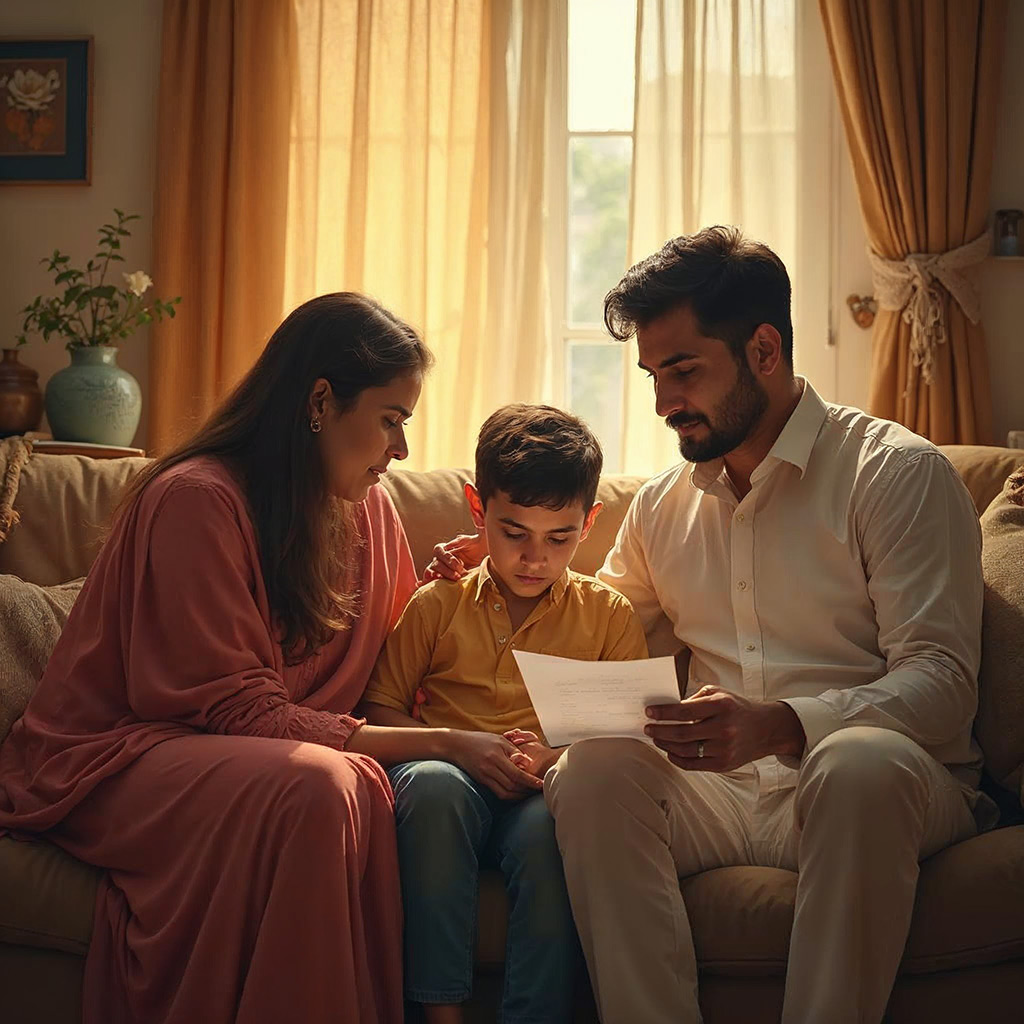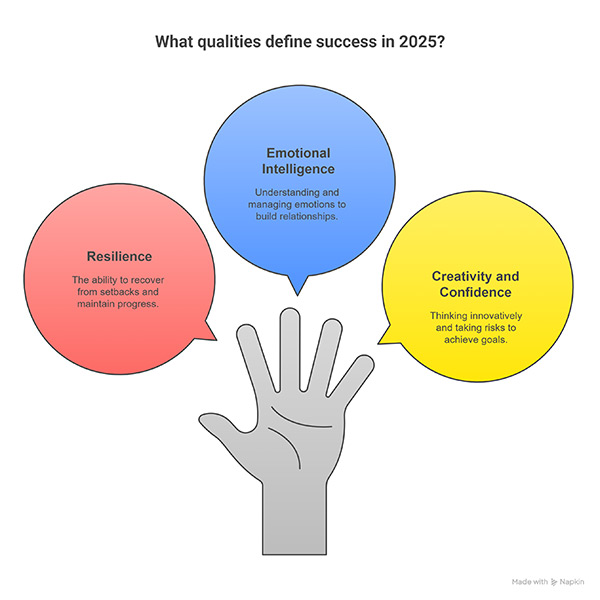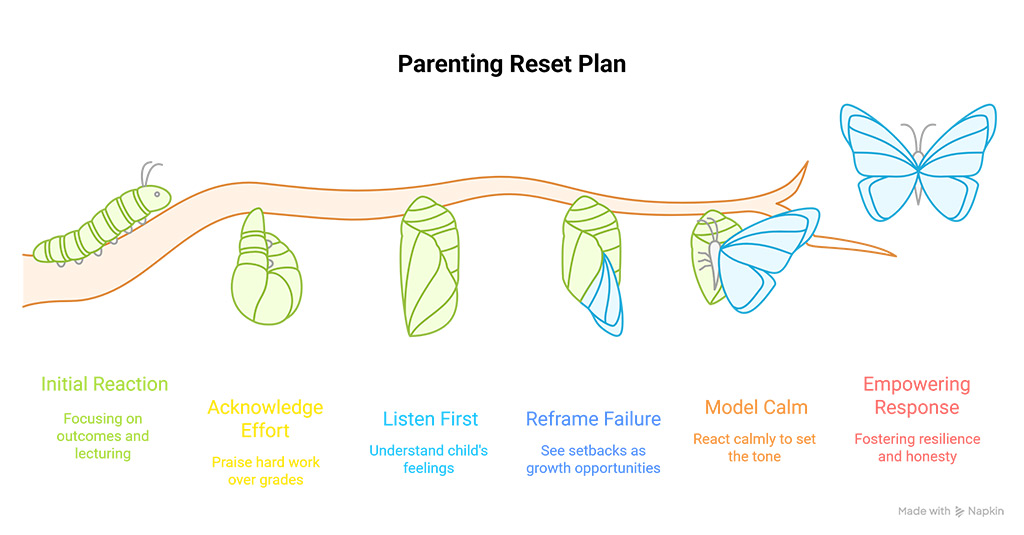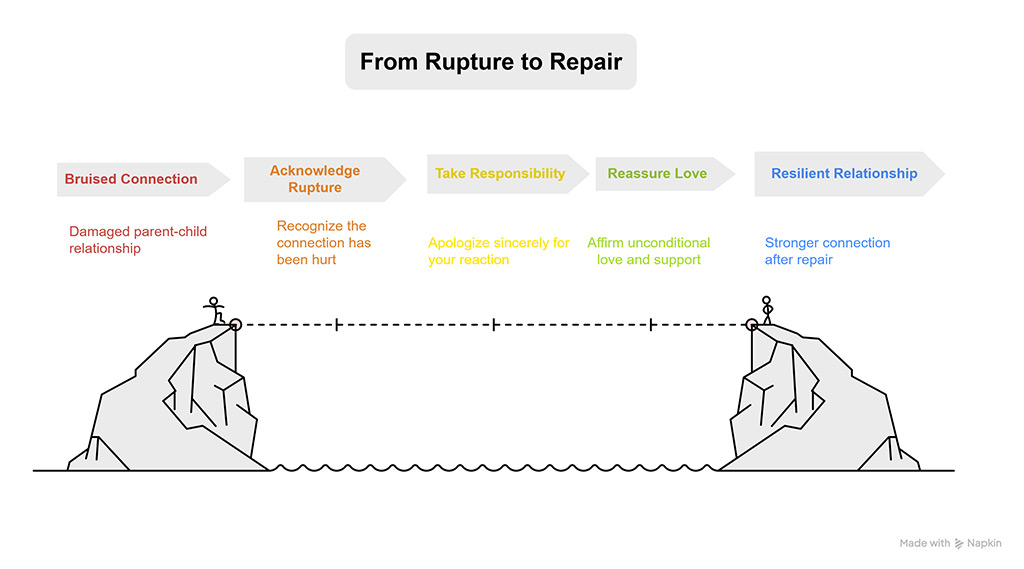
The clock strikes midnight, and so begins the day with a fervent refreshing of online result portals, while the school WhatsApp group buzzes with the familiar cry: “system down hai!” Each tick of the clock feels like a personal attack; throats dry up like Sibi in July, and palms perspire as if it were monsoon. Parents hover in the background, rosary in hand, sighing on repeat: delivering their relentless broadcast of doom.
Welcome to Result Day: our unofficial National Anxiety Day in every desi household. A day of action and overreaction, it ends with you either paraded as family royalty on WhatsApp or treated as the scandal that keeps curtains drawn for a week. There is no middle ground.
Spend five minutes with any parent, and you’ll hear a familiar cascade of worries: “My child doesn’t listen, doesn’t study, and is always glued to a screen.” These laments aren’t new, but the problem is that our parenting style often isn’t either. Even in 2025, many of us are still using a 1990s playbook: rigid discipline, endless comparisons, and strict control, upgraded with WhatsApp reminders and digital surveillance.
 But here’s the truth: our children are not robots we can program with endless naseehat (advice). Born as though with a Wi-Fi chip in their DNA, Gen Z and Gen Alpha are constantly learning, unlearning, and adapting at speeds difficult to fathom. They are not meant to simply follow orders, but to question, innovate, and create.
But here’s the truth: our children are not robots we can program with endless naseehat (advice). Born as though with a Wi-Fi chip in their DNA, Gen Z and Gen Alpha are constantly learning, unlearning, and adapting at speeds difficult to fathom. They are not meant to simply follow orders, but to question, innovate, and create.
Parental pressure rarely comes from a bad place; it stems from our innate fiker (worry) for our children’s future and, of course, the family’s izzat (honour). For decades, good grades were seen as the only pathway to success. Parents swelled with pride, became the talk of their social circles, and proudly decorated walls with trophies, medals, and certificates.
Yet what we failed to realise, then and even now, is that children respond differently to our relentless “Comparison Olympics.” What we call “tough love” often lands as rejection. Result Day becomes less about academics and more about a parental verdict on self-worth. Not every child is destined for straight A*s, and that is not failure. Many will shine in other ways.
For children who are less academically inclined, the fallout is sobering. They do not just hear our words; they feel the weight of disappointment, often internalising it as anxiety. This shows up as emotional withdrawal, strained friendships, and a crippling loss of confidence. Screens then become their only escape. Left unchecked, the cycle turns into chronic stress, impairing memory and focus.
This generation lives in a world where influencers can earn more than doctors, and global opportunities are one click away. In this reality, a string of A*s is no longer the only golden ticket. Yes, good grades open doors, but other qualities keep them from slamming shut.
Studies in Pakistan show that more than half of students suffer from exam-related anxiety. Globally, nearly 40% of students report test stress. This pressure is not building resilience; it is breaking spirits.
What really defines success in 2025 are qualities like:
These are the superpowers in high demand by employers, universities, and communities worldwide. Yet they are often overlooked when parents reduce success to marks on a page.
So perhaps the real test isn’t for the children at all. It is for us, as parents. Can we reset the way we respond?

So, pace yourself. Have chai and samosas if you must, but don’t let panic, self-blame, or projection dictate your parenting.
Even the most well-intentioned parents’ relapse into old habits: a snap of anger, a cutting comparison, a dramatic sigh. It happens. This may cause what is known as a rupture, a moment when the connection with our child bruises. But the most important parenting skill is what comes next: the Repair.
Repair isn’t just a quick “sorry.” It’s returning to your child later and saying, “I’m sorry for the way I reacted. I was worried, but that was not fair to you. Your results don’t change how much I love you.” Repair teaches your child that relationships are stronger than mistakes and that imperfection is human.
So, if you catch yourself going down the “Ahmed did better” road, pause. Breathe. Repair. Parenting is not about perfection; it is about resilience in relationships.

We are raising children who are more informed, more vocal, and more pressured than any generation before. If we want them to be future-ready, the path isn’t command-and-control. It is connect-and-coach.
Attachment before academics. Empathy before enforcement.
Because the greatest legacy we can leave is not the burden of perfection, but the freedom to grow confidently, authentically, and resiliently.